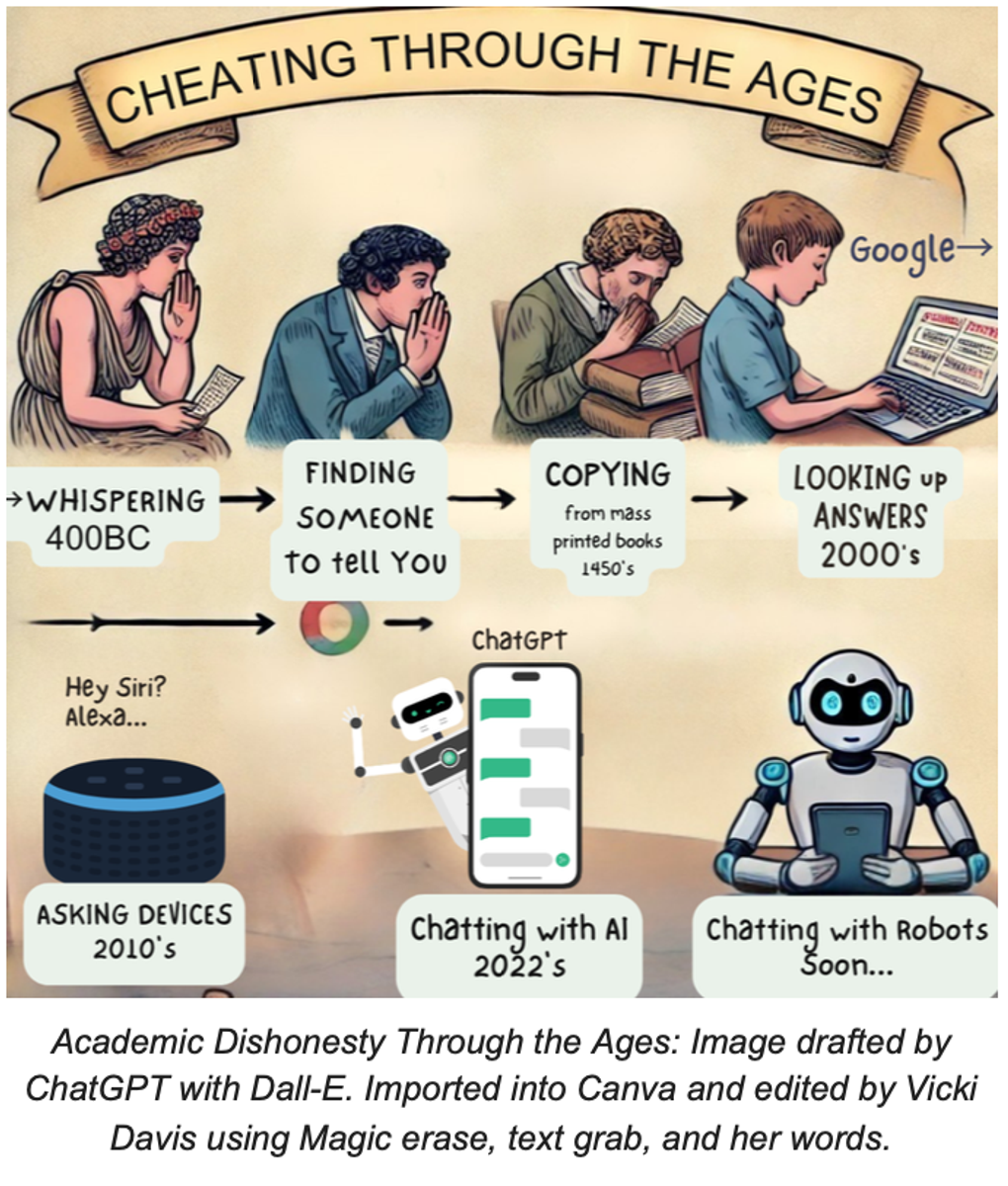The Technology Page:

AI Didn’t Invent Cheating – Students Have Always Found “Answers”
AI didn’t create cheaters—it just made shortcuts easier to find. Even Benjamin Franklin
knew the power of imitation in learning. As a young man, he practiced writing by copying
essays from The Spectator, then reconstructing them from memory. He spotted and improved his weaknesses when he compared his work to the original. It wasn’t cheating—it was a strategy to learn and master the craft of writing.
Long before AI, students found ways to get the answers:
Ancient times: Socrates likely caught students whispering answers before an oral
exam.
Printed books: Students copied from the World Book Encyclopedia.
Classroom tricks: Some peeked at the teacher’s answer key, dated a smart
student, or paid the smartest kid in class to do their homework.
But here’s the real difference—Socrates could look a student in the eyes and know if they
truly understood. Can we still do that in an AI-powered world?
Finding the Questions That Take a Lifetime to Answer
Our students need to find questions. Questions that haunt them. Questions that keep
them up at night. These are questions that can take a lifetime to answer.
Questions like:
- How do we prevent wildfires from spreading?
- How can we help people in storms?
- How do we cure cancer?
- How do we help people from different countries work together?
How do we teach kids when the temptation to cheat is as close as their back
pocket?
AI isn't the hero or villain of education. The heroes and villains are usually us.
And the frustration of AI can quickly turn us educators into villains if we let it.

